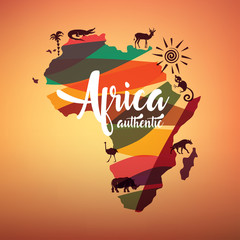Clinical trials Translation services in Africa
Clinical trials are essential in testing the safety and efficacy of new treatments, vaccines, and drugs before they reach patients. These complex medical studies require a great deal of attention to detail and accuracy throughout every stage.One crucial aspect is the translation of clinical trial documents into different languages for multinational studies. Clinical trials translation services play an integral role in ensuring that all participants have access to accurate information about the study.
Translation Africa is one such company that specializes in providing high-quality clinical trials translation services. With extensive experience in translating medical documents, this agency ensures that all translations meet regulatory requirements while maintaining technical accuracy. Their team includes expert translators who are proficient in various languages and possess knowledge on diverse therapeutic fields.Translation Africa uses state-of-the-art technology tools to guarantee fast turnaround times without compromising quality or confidentiality. In this article, we will explore the importance of clinical trials translation services and how Translation Africa can help your organization achieve successful multilingual clinical trials.

Why You Should Invest in Clinical trials Translation services Today in Africa with Translation.africa
Translation.africa has a network of experienced translators who specialize in clinical trials translation and understand the specific requirements of the pharmaceutical and research industries. They ensure confidentiality, accuracy, and regulatory compliance throughout the translation process.
Investing in clinical trials translation services with Translation.africa allows you to conduct trials ethically, engage participants effectively, and navigate the unique challenges of the African market. It positions your organization for success in advancing medical research and improving healthcare outcomes in Africa.
Access to Diverse Patient Populations: Africa is home to a diverse population, making it an ideal location for conducting clinical trials. By investing in clinical trials translation services, you can effectively communicate with potential study participants in their local languages. This enhances participant recruitment and retention, ensuring a more representative and diverse sample for your clinical trials.
Compliance with Regulatory Requirements: Conducting clinical trials in Africa requires adherence to local regulatory frameworks and ethical guidelines. Translation.africa’s clinical trials translation services ensure accurate translation of essential trial documents, such as informed consent forms, protocols, case report forms, and patient questionnaires. This helps you meet regulatory requirements and ensures that participants fully understand the trial procedures.
Improved Participant Engagement and Understanding: Clear and accurate communication is crucial for participant engagement and understanding in clinical trials. Translating trial-related materials, including participant information sheets, educational materials, and study-related correspondence, allows participants to comprehend the information in their native languages. This promotes informed decision-making, enhances compliance, and improves overall participant experience.
Cultural Sensitivity and Localization: Cultural sensitivity plays a significant role in clinical trials. Translation.africa’s services take into account the cultural nuances and preferences of African populations. They ensure that translated materials are culturally appropriate, resonate with the target audience, and are easily understood. Localization of trial materials fosters trust, engagement, and cooperation among participants and healthcare professionals.
Efficient Site Operations and Data Collection: Investing in clinical trials translation services streamlines site operations and data collection. Translated standard operating procedures (SOPs), training materials, and data collection tools enable site staff to perform their roles effectively. By providing materials in local languages, you facilitate smooth data collection, improve data quality, and reduce errors arising from language barriers.
Collaboration with Local Investigators and Experts: Partnering with local investigators and healthcare professionals in Africa is essential for successful clinical trials. Translation.africa facilitates effective collaboration by providing translation services for research papers, study findings, and communication between international and local teams. This fosters knowledge exchange, strengthens partnerships, and promotes local capacity building.
Market Expansion and Access to New Treatments: Conducting clinical trials in Africa can provide insights into the efficacy and safety of new treatments in diverse patient populations. By investing in clinical trials translation services, you can generate data that supports regulatory submissions and expands market access for your products. This opens up new opportunities for introducing innovative treatments in the African market.
560+
560+
560+
2100
Types of Our Professional Clinical trials Translation services in Africa


Informed Consent Forms (ICFs): Translation.africa specializes in translating informed consent forms, which are crucial documents in clinical trials. They ensure accurate translation of ICFs into the local languages spoken in Africa, maintaining clarity and readability. Translated ICFs enable participants to fully understand the purpose, procedures, risks, and benefits of the clinical trial, facilitating informed decision-making.
Clinical Protocols: Translation.africa translates clinical trial protocols, which outline the objectives, methodology, inclusion and exclusion criteria, and procedures of the study. Accurate translation of protocols ensures that researchers, investigators, and ethics committees in Africa can understand and follow the study requirements. This helps ensure consistency and compliance across different study sites.
Case Report Forms (CRFs): Translation.africa provides translation services for case report forms, which are used to collect data during clinical trials. Translated CRFs enable accurate and standardized data collection from participants across multiple languages. This ensures that data collected from diverse African populations is reliable and can be effectively analyzed.
Participant Questionnaires and Surveys: Translation.africa assists in translating participant questionnaires and surveys used to gather subjective data and assess outcomes in clinical trials. Translated questionnaires allow participants to respond accurately and provide valuable insights. By offering questionnaires in local languages, cultural and linguistic barriers are minimized, leading to more reliable and comprehensive data.
Standard Operating Procedures (SOPs): Translation.africa offers translation services for standard operating procedures used in clinical trial site operations. Translated SOPs ensure that site staff in Africa understand and follow the required processes, maintaining consistency and compliance across different sites. This promotes efficient trial management, data collection, and quality control.
Clinical trials Translation services in Africa the way you want it
At Translation.africa,The Role of Translation in Clinical Trials has been established as a critical component to ensure that clinical trials are conducted without any language barriers. Accurate translation is essential in relaying information from one language to another, and it can have significant benefits for the outcome of clinical trials. In this section, we will discuss the importance of accurate translations and how they impact clinical trials.
Interpreting Urgent Services in Africa
Marketing and Advertising Translation Services in Africa
Legal Translation Services in Africa
Importance of Clinical trials Translation services in Africa

-
01
Participant Engagement and Retention:
Effective communication is vital for participant engagement and retention in clinical trials. Translating trial-related materials, such as participant information sheets and questionnaires, into participants' native languages enhances their understanding and engagement. This promotes trust, compliance, and improved participant retention throughout the trial. -
02
Collaboration and Knowledge Sharing:
Africa has a growing research community, and collaborations between international and local researchers are increasingly common. Clinical trials translation services facilitate effective communication and knowledge sharing between researchers from different countries and cultural backgrounds. Translated scientific articles, study reports, and communication materials foster collaboration and contribute to the advancement of medical research in Africa. -
03
Market Expansion and Healthcare Access
Clinical trials conducted in Africa generate data that can support regulatory submissions and expand market access for new treatments. Translating trial materials enables pharmaceutical companies to communicate trial outcomes effectively to regulatory authorities, healthcare professionals, and potential consumers. This helps expedite the approval and availability of innovative treatments in Africa, improving healthcare access for the local population.
Clinical trials Translation services Setting For All Settings At Translation.Africa?
Academic and Research Institutions
Translation.africa collaborates with academic and research institutions involved in clinical trials. They provide translation services for study protocols, informed consent forms, case report forms, participant questionnaires, and other research-related materials. These services help academic institutions conduct trials ethically, expand their research capabilities, and foster collaborations within the scientific community.
Pharmaceutical and Biotech Companies
Translation.africa works with pharmaceutical and biotech companies conducting clinical trials in Africa. They offer translation services for regulatory documents, investigator brochures, safety reports, and other trial-related materials. By ensuring accurate translations of these materials, Translation.africa supports companies in their regulatory compliance efforts, market expansion, and successful product launches.
Contract Research Organizations (CROs)
Translation.africa collaborates with CROs involved in managing and coordinating clinical trials. They provide translation services for various trial documents, including study protocols, site initiation documents, monitoring reports, and regulatory submissions. By offering accurate translations, Translation.africa assists CROs in streamlining trial operations, ensuring consistency across multiple sites, and meeting project timelines.
Healthcare Institutions and Hospitals
Translation.africa works with healthcare institutions and hospitals involved in clinical trials. They offer translation services for patient information sheets, consent forms, medical records, and other trial-related documents. These services help healthcare institutions communicate effectively with patients, ensure compliance with ethical standards, and deliver high-quality patient care within the context of clinical trials.
Medical Device Companies
Translation.africa works with medical device companies conducting clinical trials in Africa. They offer translation services for user manuals, instructions for use, labeling, and regulatory documentation related to the medical devices under investigation. By ensuring accurate translations, Translation.africa supports medical device companies in complying with regulations, enhancing user safety, and facilitating successful product launches.
Patient Support and Advocacy Services
Translation.africa supports patient support and advocacy services associated with clinical trials. They provide translation services for support materials, counseling resources, and patient communications. By offering accurate translations, Translation.africa ensures that patients and their families receive the necessary support and information, enhancing their engagement and overall trial experience.
Clinical trials Translation services Pricing



The pricing for clinical trials translation services provided by Translation.africa may vary depending on several factors. It is important to contact Translation.africa directly to obtain accurate and up-to-date pricing information tailored to your specific requirements. However, here are some factors that can influence the pricing of clinical trials translation services:
Volume of Content: The total volume of content to be translated, including the number of words or pages, can impact the pricing. Larger volumes of content may involve more extensive translation work, which can affect the overall cost.
Language Pair: The language pair involved in the translation, such as English to French or French to Swahili, can also influence the pricing. The complexity and availability of translators for a specific language pair can affect the overall cost.
Turnaround Time: Urgency or the required turnaround time for the translation services can impact the pricing. Expedited or rush translations may involve additional costs to ensure timely delivery.
Specialized Content: If the clinical trial materials contain highly specialized or technical content, such as medical terminology or scientific jargon, it may require translators with specific expertise. Specialized content can affect the pricing due to the need for translators with domain knowledge.
Formatting and Layout: If the translated materials require specific formatting and layout to match the original documents, additional charges may apply. This is especially relevant for documents with complex tables, charts, or graphics.
Additional Services: Translation.africa may offer additional services, such as proofreading, editing, or back-translation, which can impact the overall pricing. These services ensure the accuracy and quality of the translations and may involve additional fees.
Project Complexity: The complexity of the clinical trial materials and the level of detail involved can affect the pricing. For example, if the translation requires extensive research, terminology validation, or collaboration with subject matter experts, it may incur additional costs.
It is recommended to reach out to Translation.africa directly to discuss your specific requirements and receive a detailed pricing quote tailored to your needs. They will provide transparent pricing information and work with you to find the most suitable solution within your budget for clinical trials translation services in Africa.
Applications of Clinical trials Translation Services in Africa



Informed Consent Process: Translation services play a crucial role in the informed consent process. By translating informed consent forms into local languages, clinical trials translation services ensure that participants fully understand the purpose, procedures, potential risks, and benefits of the trial. This promotes ethical practices and enables individuals to make informed decisions about their participation.
Participant Recruitment and Retention: Effective communication is vital for participant recruitment and retention in clinical trials. Translating participant recruitment materials, advertisements, and study information into local languages helps reach a broader audience and increases the chances of successful recruitment. Additionally, translated materials throughout the trial, such as questionnaires, diaries, and communication materials, enhance participant understanding and engagement, leading to better retention rates.
Cultural and Linguistic Sensitivity: Africa is a continent with diverse cultures and languages. Clinical trials translation services ensure cultural and linguistic sensitivity in research activities. Translations take into account local nuances, cultural beliefs, and specific terminology, allowing for effective communication and eliminating language barriers that could hinder participant engagement and data collection.
Regulatory Compliance: Conducting clinical trials in Africa requires compliance with local regulatory frameworks. Translation services ensure that trial-related documents, such as study protocols, investigator brochures, and safety reports, are accurately translated to meet regulatory requirements. This facilitates smooth interactions with regulatory authorities, ethics committees, and other relevant stakeholders.
Data Collection and Analysis: Accurate translation of data collection tools, such as case report forms and questionnaires, is essential for reliable data collection and analysis. Clinical trials translation services ensure that data collected from participants in Africa is accurately translated back into the language of analysis, maintaining data integrity and facilitating meaningful interpretation of results.
Translating Clinical trials Content: Best Practices And Considerations in Africa
When it comes to translating clinical trials content in Africa, several best practices and considerations should be taken into account to ensure accuracy, cultural sensitivity, and effective communication. Here are some key guidelines:
Language Expertise: Utilize professional translators with expertise in both the source and target languages. It is crucial to work with translators who have a strong understanding of medical and scientific terminology to ensure accurate translations of complex clinical trial materials.
Cultural Context: Consider the cultural nuances and sensitivities of the target audience. Africa is a diverse continent with various cultures, languages, and healthcare practices. Translators should be aware of these cultural differences to ensure that translations are appropriate and culturally sensitive.
Localization: Go beyond mere translation and focus on localization. Adapt the content to suit the target audience’s language, cultural norms, and healthcare system. Localization may involve modifying units of measurement, currency, date formats, and any region-specific regulations or guidelines.
Terminology Consistency: Maintain consistency in terminology throughout the translated materials. Developing a glossary of commonly used terms specific to the clinical trial can help ensure consistency across all translated documents. This promotes clarity, reduces confusion, and enhances accuracy.
Quality Assurance: Implement a robust quality assurance process to ensure the accuracy and reliability of the translated content. This may involve proofreading, editing, and review by subject matter experts to verify the correctness of the translations, especially for critical documents like informed consent forms and study protocols.
Adherence to Regulatory Requirements: Familiarize yourself with the regulatory requirements regarding translation in the target country. Different countries may have specific guidelines on translation, such as the need for back-translation or certified translations. Ensure compliance with these regulations to maintain the integrity and validity of the clinical trial.




What Sets Clinical trials Translation services Apart At Translation.Africa?
Where Can You Find Clinical trials Translation services with Translation.Africa?
Translation Africa’s expertise in medical translation has been well-established. However, it is not limited to just that field as they also offer clinical trials translation services. With their team of highly skilled translators and subject matter experts, they can accurately translate documents related to various stages of clinical research. Their attention to detail ensures compliance with regulatory requirements and helps clients save time and resources.
The Clinical trials Translation services Process

Phase 1: Project Preparation
Needs Assessment: The process begins with a thorough needs assessment where you identify the specific content that requires translation. This could include documents such as contracts, marketing materials, product descriptions, technical manuals, and more. Determine the target languages and any specific requirements for the translation project.
Translation Project Planning: Once the scope and requirements are established, the translation project is planned. This involves defining timelines, assigning resources, and determining the budget. It is important to work closely with your chosen translation service provider, such as Translation.africa, to ensure a clear understanding of the project goals and expectations.
Source Material Preparation: Prepare the source materials for translation. This may involve organizing the content, ensuring it is complete and accurate, and providing reference materials or glossaries to the translation team. Clear instructions and context can help the translators better understand the content and deliver accurate translations.

Phase 2: Project Execution
Translation: The translation phase involves professional translators who are proficient in the source and target languages. They translate the content while considering the intended audience, cultural nuances, and maintaining accuracy. The translators may use translation memory tools, glossaries, and other resources to ensure consistency and quality.
Editing and Proofreading: Once the initial translation is complete, the translated content undergoes editing and proofreading. This step is essential for ensuring accuracy, linguistic fluency, and consistency in terminology and style. Experienced editors review the translations and make any necessary adjustments to improve the overall quality of the content.
Quality Assurance: A comprehensive quality assurance process is crucial to maintain high translation standards. This may involve additional review stages, proofreading, and linguistic validation. Quality assurance checks ensure that the final translations meet the required standards, adhere to industry-specific terminology, and comply with any applicable regulations.

Phase 3: Project Completion
Formatting and Localization: If necessary, the translated content is formatted and localized to suit the target audience. This includes adjusting layout, fonts, images, and other design elements to ensure a seamless user experience. Localization considers cultural and regional preferences to make the translated content resonate with the target audience.
Client Review and Feedback: The client is given an opportunity to review the translated content and provide feedback. This stage allows for any necessary revisions or adjustments based on client preferences or specific requirements. Open communication between the client and the translation service provider is essential during this review process.
Delivery: Once the translations are finalized and approved, the translated content is delivered in the desired format. This may involve delivering the content electronically, via a content management system, or providing physical copies. The translation service provider should ensure the secure and timely delivery of the translated materials.
Post-translation Support: A reliable translation service provider offers post-translation support to address any questions or concerns that may arise after the delivery of the translated content. They should be responsive to any post-project inquiries and provide assistance in case updates or revisions are needed.

888 765 3210

Contacting Translation Africa For Your Clinical trials Translation Needs in Africa
Visit Translation.africa’s Website: Go to Translation.africa’s official website, where you can explore their services, expertise, and industry-specific solutions. The website provides comprehensive information about their translation services, specialization, and their commitment to delivering high-quality translations.
Contact Form: On the Translation.africa website, you will find a contact form or a “Contact Us” page. Fill out the necessary details, including your name, email address, phone number, and a brief description of your clinical trials translation requirements. Be as specific as possible, mentioning the languages involved, the volume of content, and any specific timelines or considerations.
Email Communication: Alternatively, you can directly email Translation.africa with your inquiry. Their email address can usually be found on their website. Compose a detailed email explaining your clinical trials translation needs, project specifications, and any specific requirements or questions you may have.
To ensure accurate and reliable medical translations, Translation Africa employs highly qualified and certified medical translators. These professionals possess advanced degrees in medicine or related fields, as well as extensive experience translating complex medical documents.
Translation Africa recognizes this importance and employs a team of multilingual translators who are not only native speakers but also possess deep knowledge of their respective cultures.
To guarantee cultural appropriateness in translations for multinational clinical trials, we adhere to specific guidelines that promote effective multilingual communication while avoiding any potential misinterpretations or misunderstandings.
The importance of timeliness in translation projects cannot be overstated, particularly for multinational clinical trials. Delays in turnaround time can have significant impacts on research timelines and ultimately affect the quality of data collected.
Data privacy regulations are of utmost importance in the field of clinical trials translation services, where sensitive information pertaining to medical research and development is often shared across borders.
To ensure confidentiality and security for such data, Translation Africa employs rigorous protocols and measures that comply with international data protection laws. These include secure file transfer, encryption technologies, strict access controls, and non-disclosure agreements with all stakeholders involved in the translation process.



